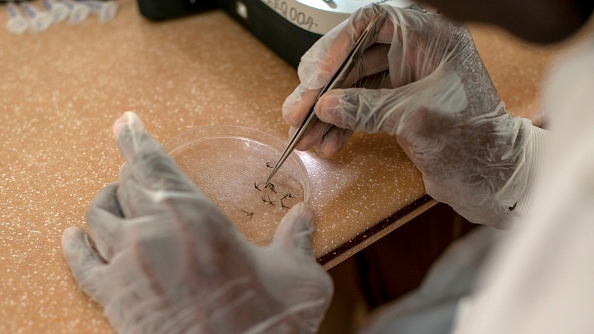
FILE PIC: n the latest clinical trial on a small number of volunteers, at least 77.8 percent of the participants who received the vaccine with chloroquine or pyrimethamine were protected against infections three months later. /Getty Images
FILE PIC: n the latest clinical trial on a small number of volunteers, at least 77.8 percent of the participants who received the vaccine with chloroquine or pyrimethamine were protected against infections three months later. /Getty Images
A new type of malaria vaccine is showing promise in early studies. The vaccine combines live malaria parasites and antimalarial drugs to produce immunity without causing disease. If larger-scale trials continue to show success, the vaccine could eventually help to reduce the 200 million-plus malaria cases recorded every year.
In the latest clinical trial on a small number of volunteers, at least 77.8 percent of the participants who received the vaccine with chloroquine or pyrimethamine were protected against infections three months later.
The vaccine also protected participants from both the African strain of the parasite used to make the vaccine and a different South American strain. These results mean that the vaccine could potentially provide broad protection beyond just a single strain or even similar strains of malaria parasites, according to the authors.
Malaria, a disease caused by parasites that are spread by mosquitoes, kills over 400,000 people a year. Although the World Health Organization estimates that almost half the world's population is at risk of contracting malaria, most cases and deaths occur in sub-Saharan Africa and in children under age 5. The symptoms associated with malaria are typically flu-like and, if left untreated, can lead to organ failure and death.
Despite the facts that the disease is treatable with drugs and preventable with insecticide-treated bed nets, the decline of cases has stalled in the past few years. One vaccine with limited effectiveness is undergoing a pilot program while another is in later-stage trials, but none is in widespread use yet.
(With input from agencies)

